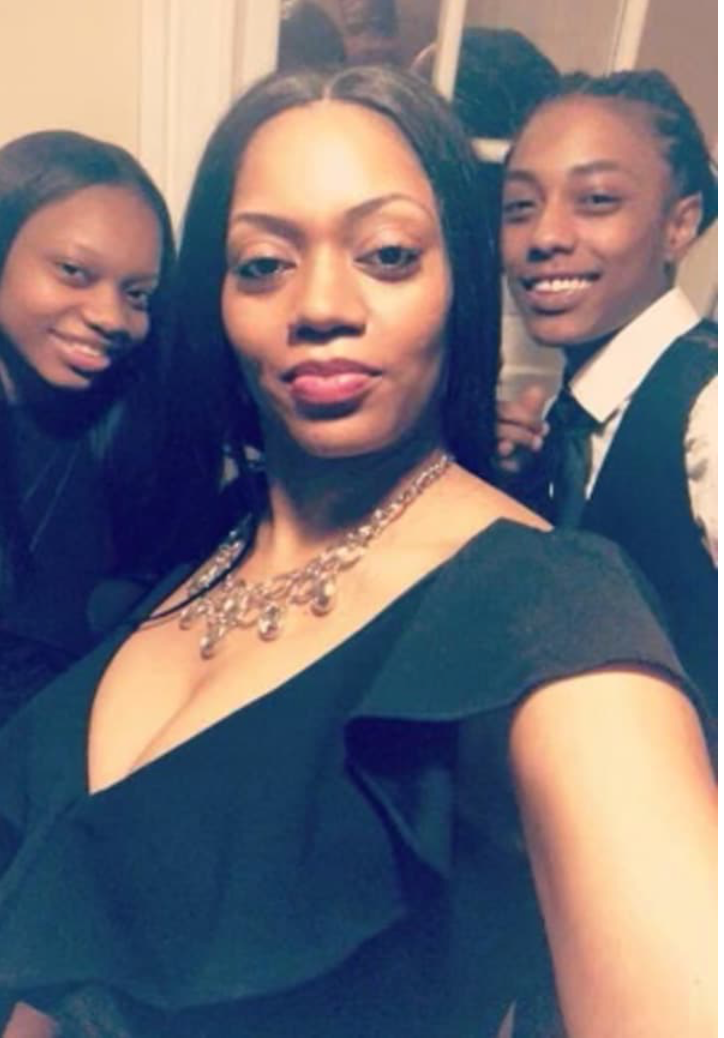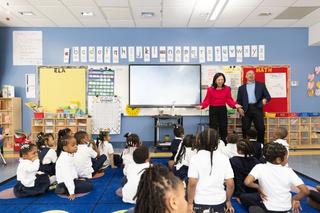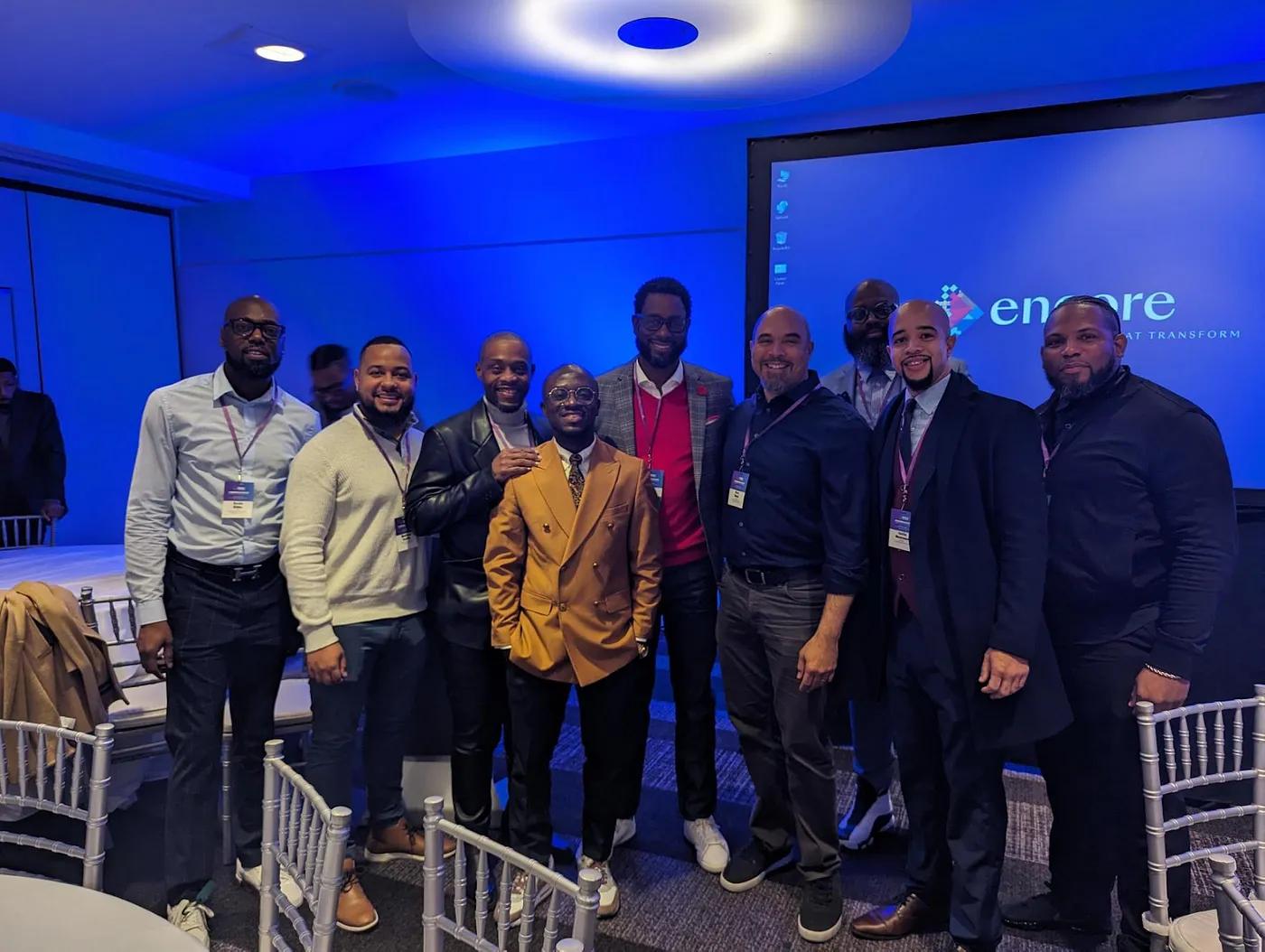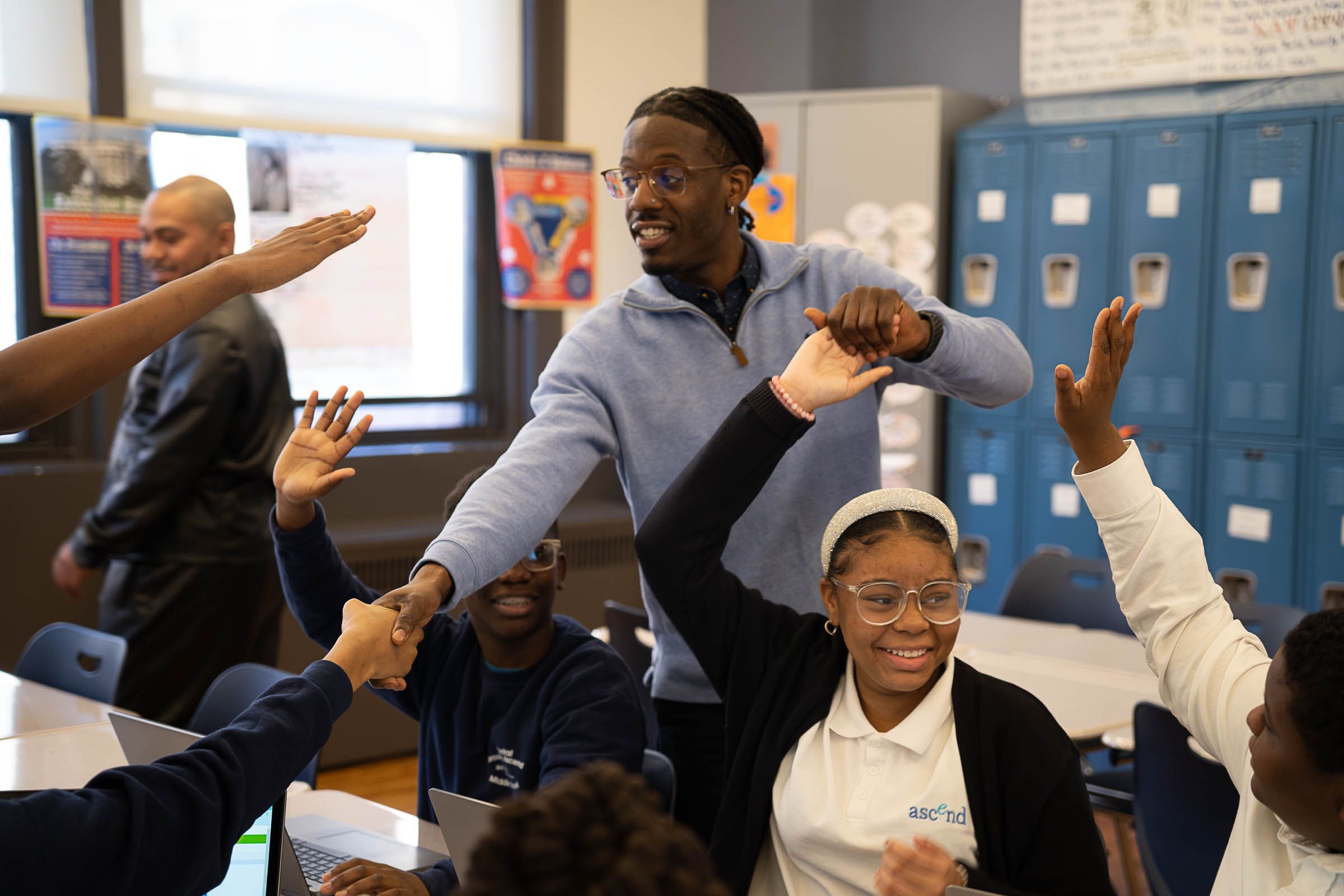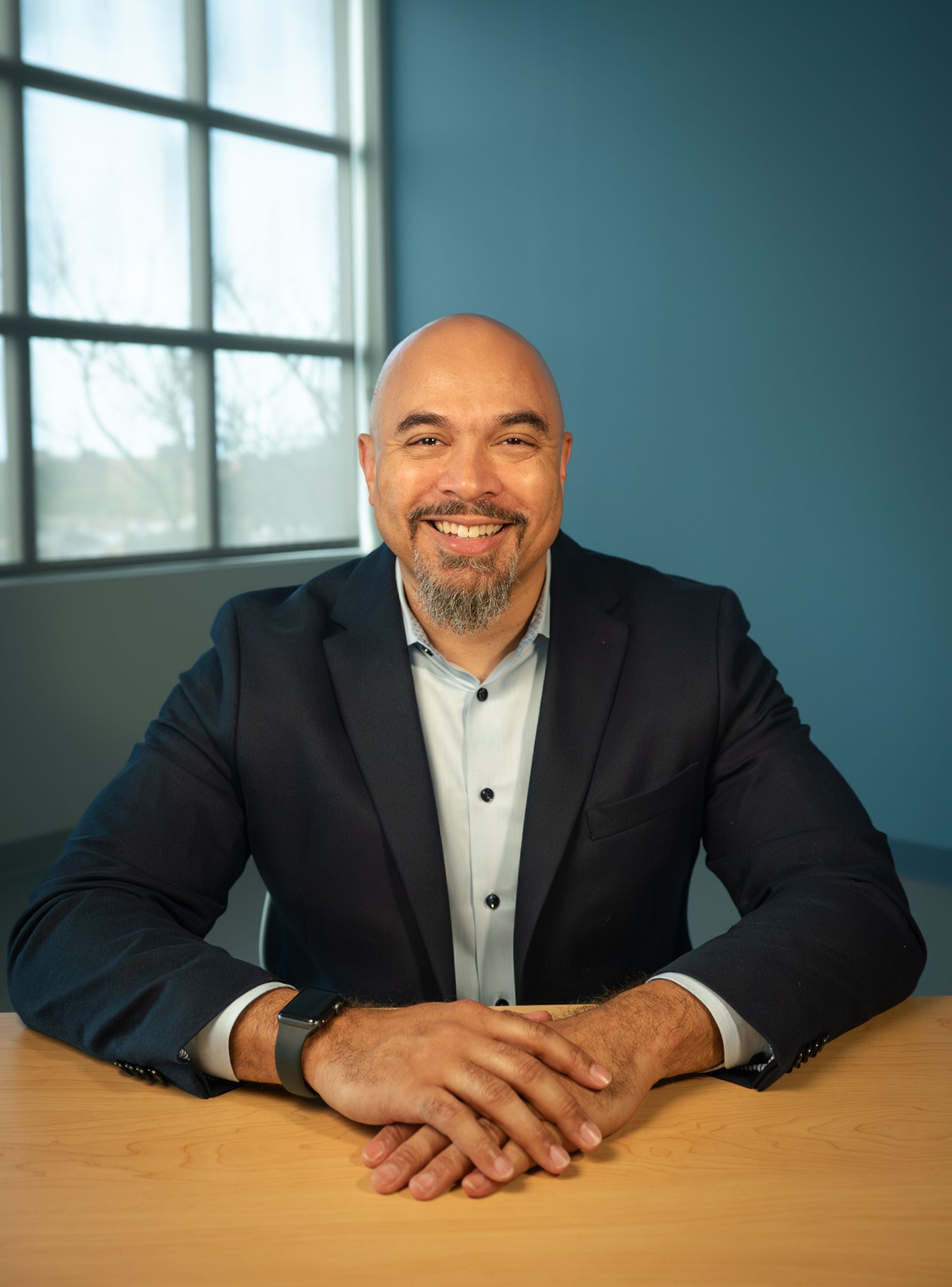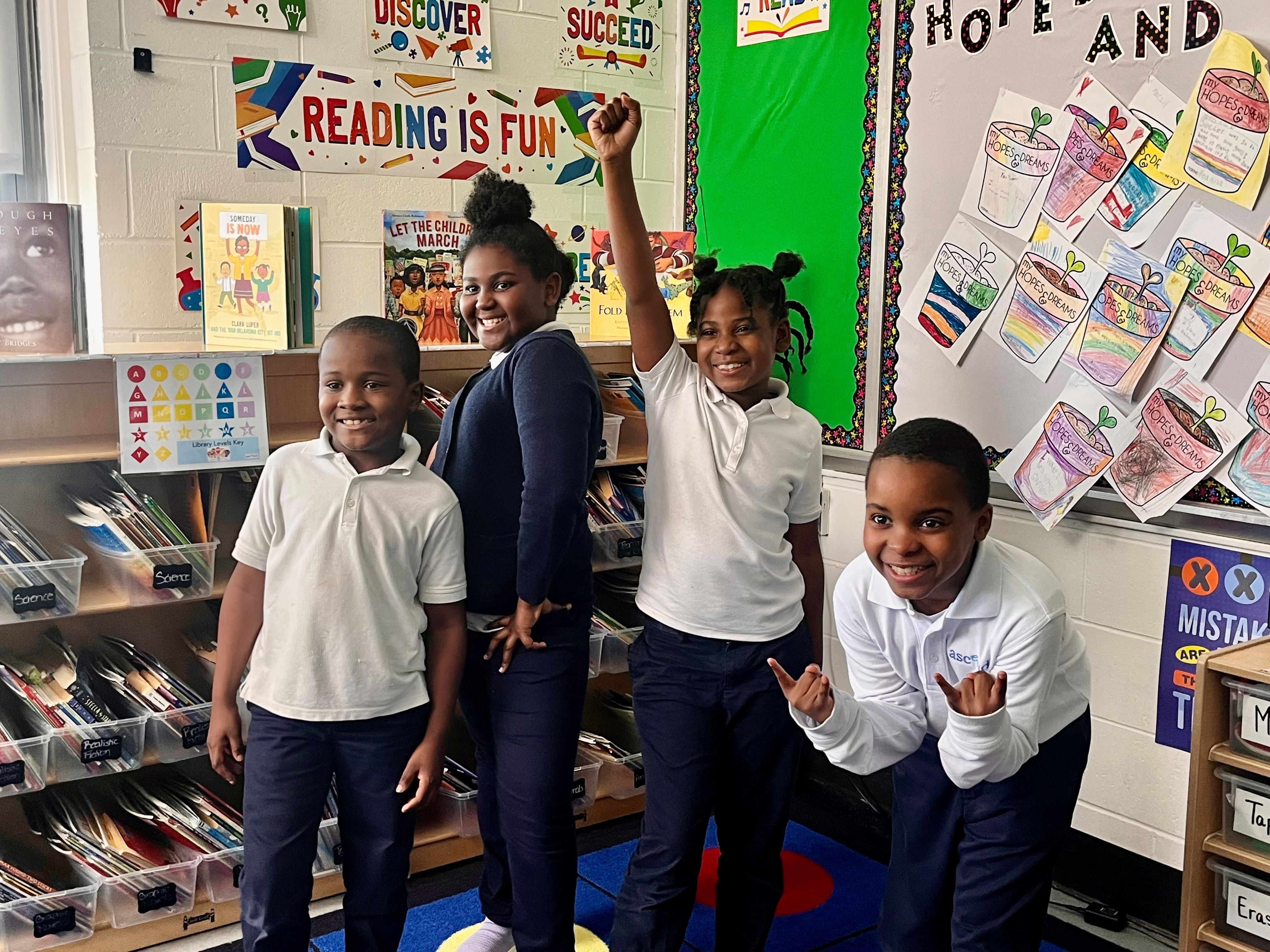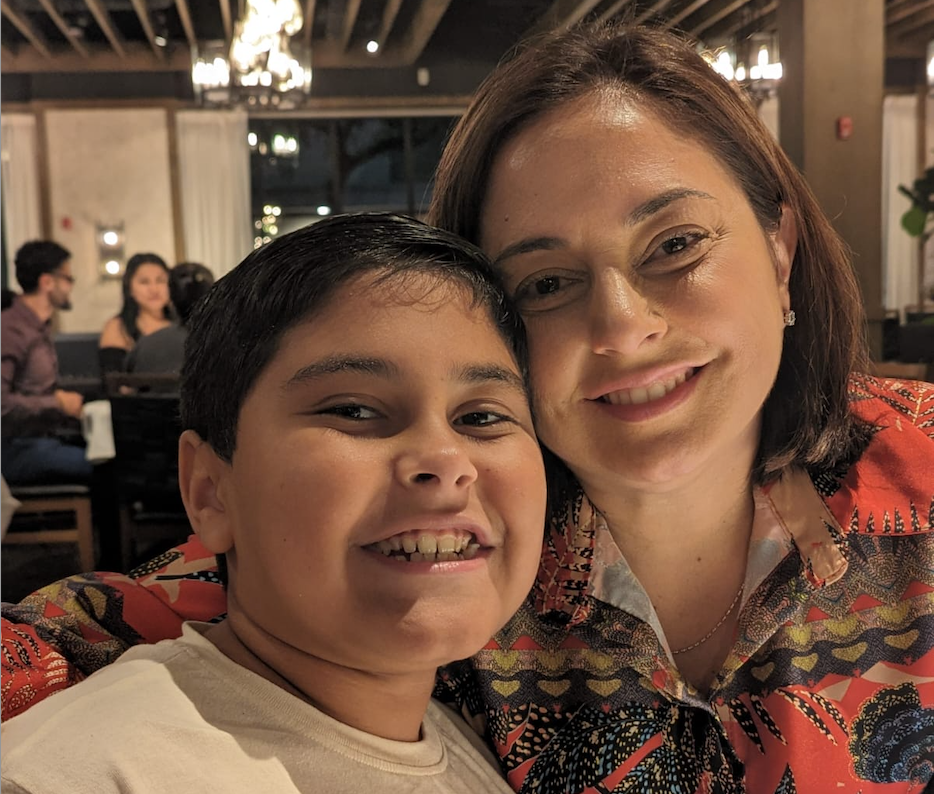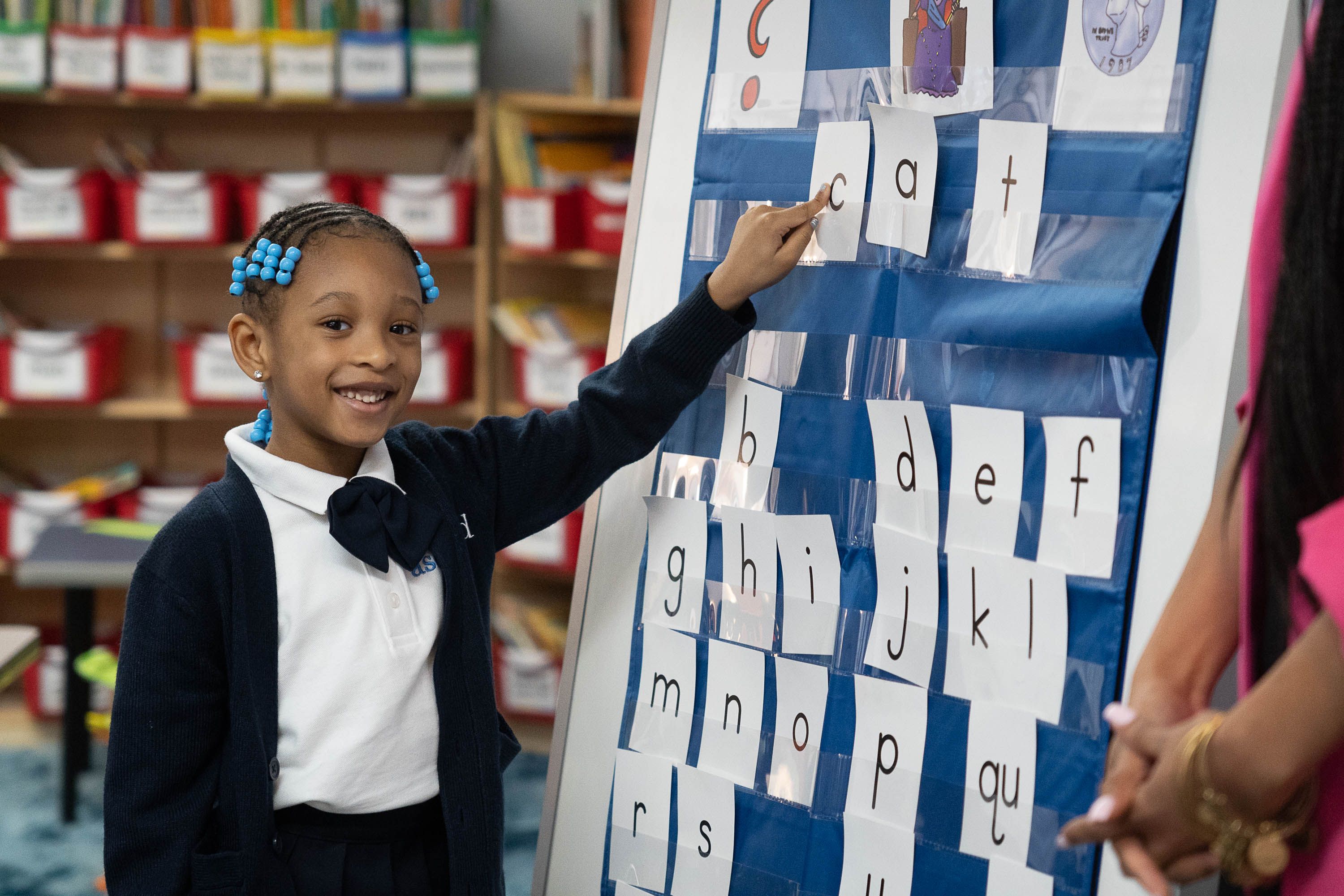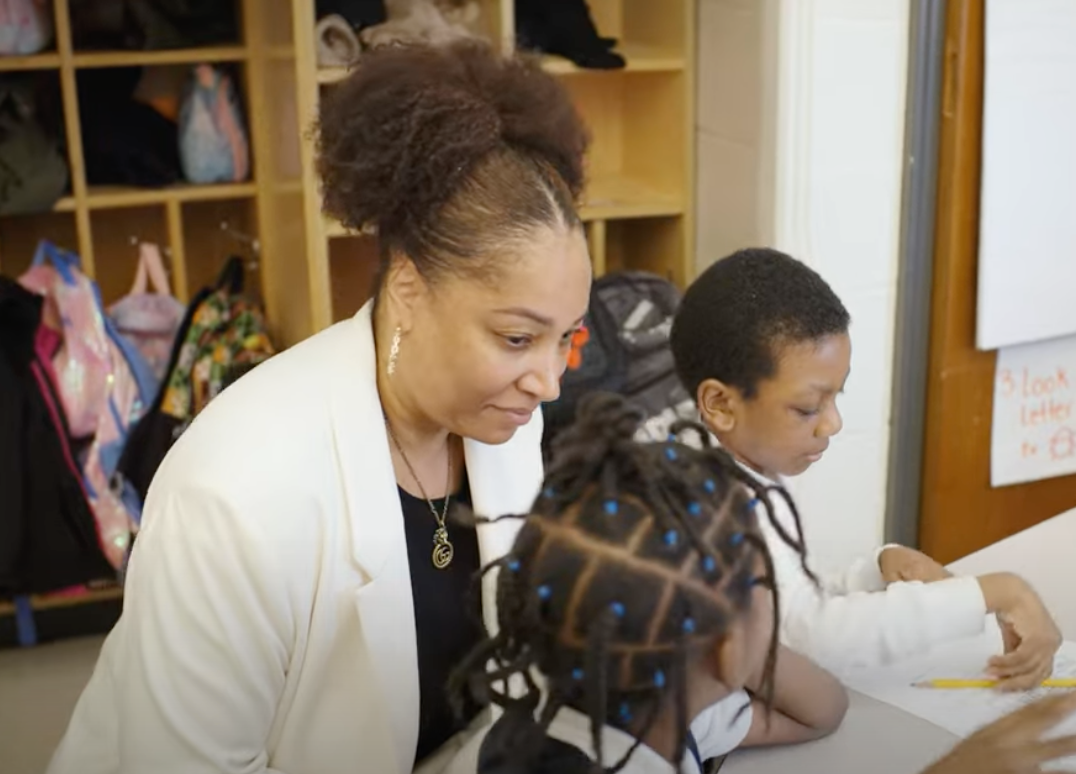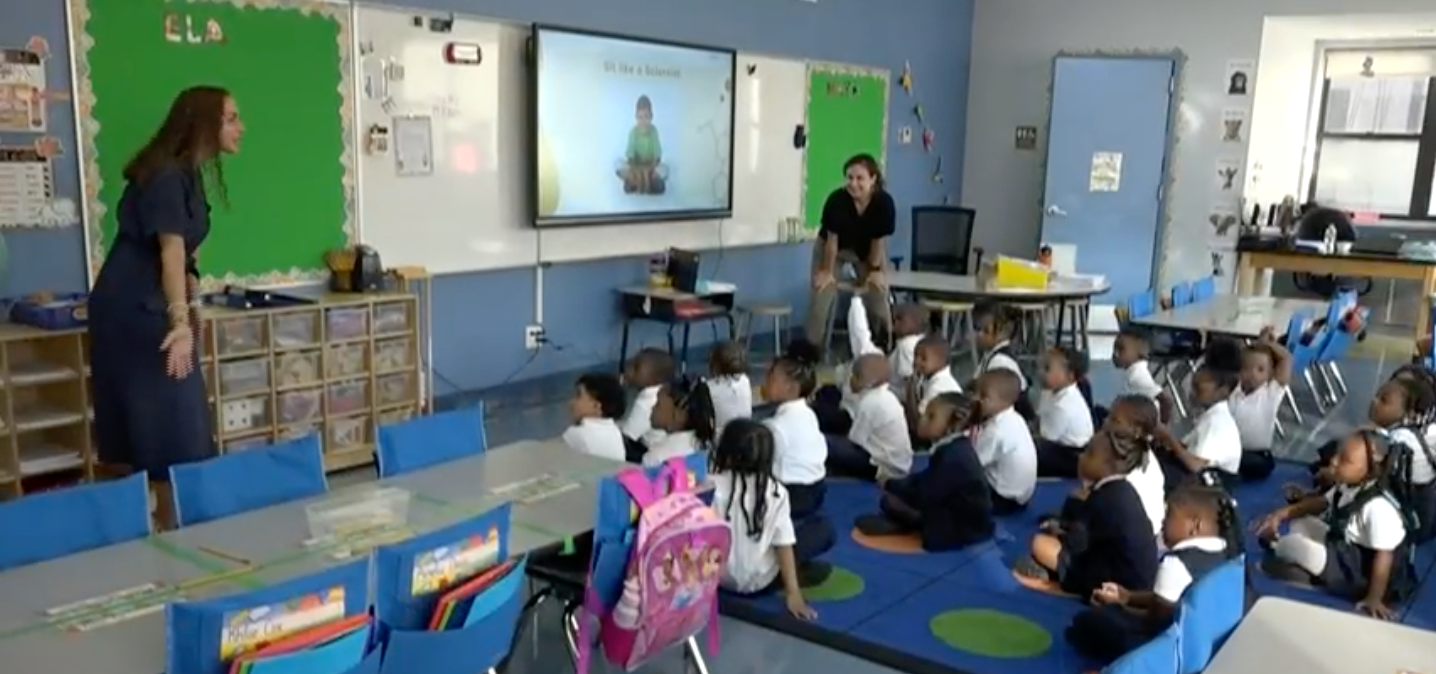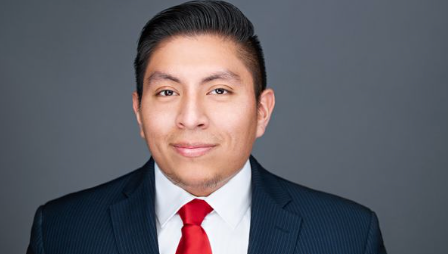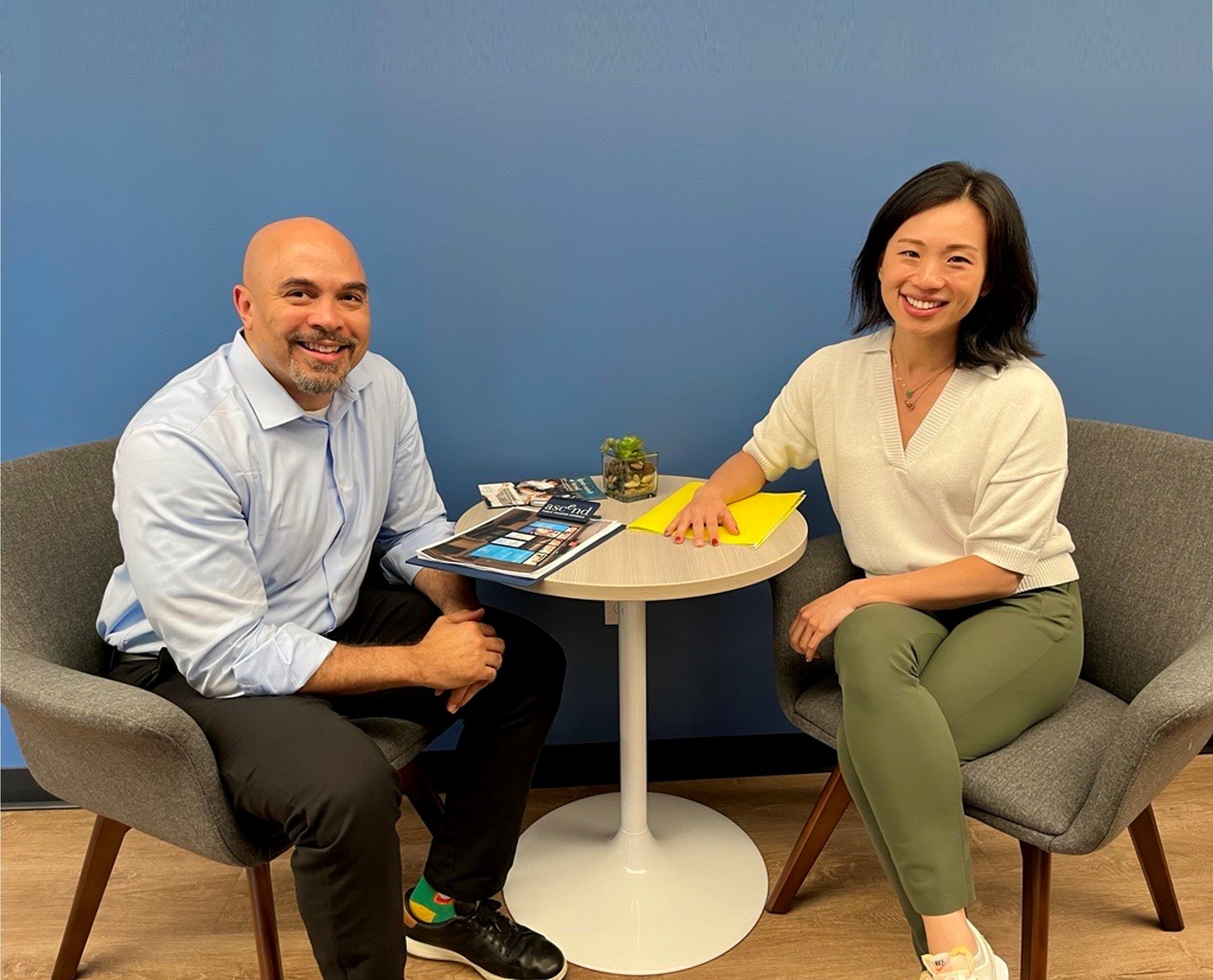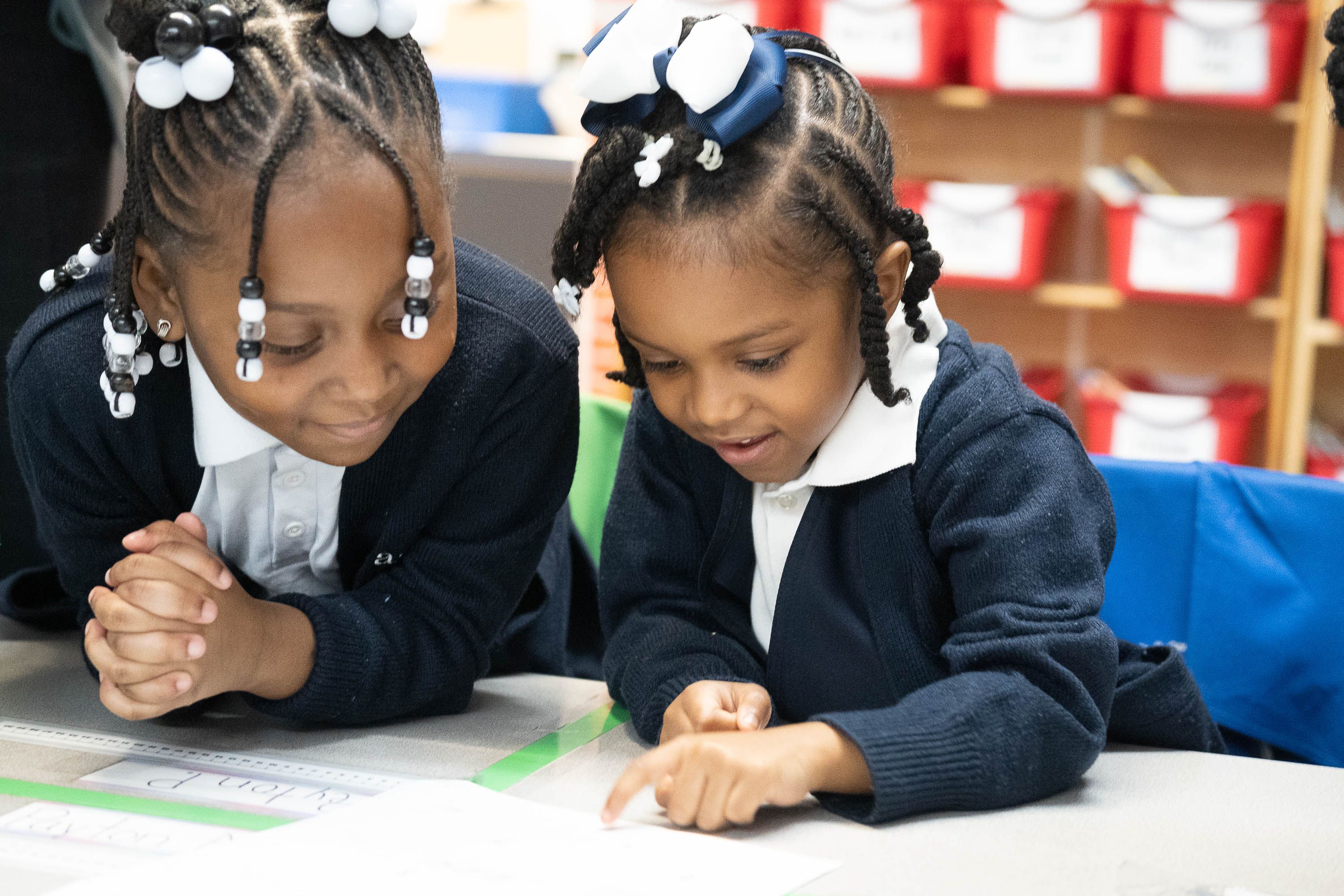Apply today for Fall 2024!
Apply today for Fall 2024!
Makayla’s Alternative Path to a Career In Healthcare
Brenna McCallick + Stephen Barker
August 10, 2022
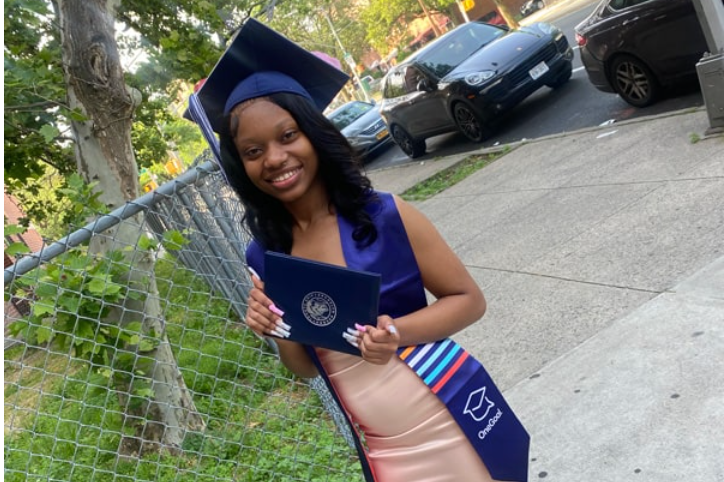
Students pursuing careers in tech, health care, cosmetology, or other skilled trades are exploring postsecondary alternatives to two- and four-year college. OneGoal Fellow in New York Makayla Ransom sees vocational school as a stepping stone in her education and career journey.
Brooklyn Ascend High School class of 2022 graduate Makayla Ransom is entering the first year of her postsecondary journey by taking the road less traveled for OneGoal Fellows: not going to college.
“I’m not ready for college,” says Makayla. Instead, with the guidance from her OneGoal Program Director, Makayla thoughtfully mapped an affordable, accessible path to a career in healthcare by enrolling in a vocational program that offers students hands-on training before joining the workforce.
The School of Cooperative Technical Education is a half-day program with in-person classes close to Makayla’s home and offered for free through funding from the New York City Department of Education. Makayla’s goal is to complete a certificate program before pursuing a Bachelor’s degree in nursing or seeking job placement among one of Co-Op Tech’s many vocational partners, “I don’t want my parents to go out and waste money, so I chose this pathway because I felt like it was better.”
The Pandemic Disrupted Many Students’ Postsecondary Plans
As we enter the third year of the pandemic, high school students and recent graduates continue to face setbacks in college readiness and enrollment. Freshman enrollment decreased by more than 13% nationwide across 2020 and 2021 compared to fall 2019. As with so many aspects of the pandemic, students of color have been hit the hardest: an estimated 22% fewer Black students enrolled in college as freshmen over the past two years compared to 2019. For Latinx students, freshman enrollment fell by 12.5% over the same period.
While these numbers are sobering, they don’t reveal the personal toll the pandemic has taken on students like Makayla. After her mother contracted COVID early in the pandemic, the virus exacerbated pre-existing conditions, “…and now it’s one hundred times worse,” says Makayla. Makayla became her mother’s caregiver along with her sister, “I feel like I need to be here for her; me, and my sister.”
High school students have endured disruptive shifts from in-person to all-virtual schooling, financial hardships due to job loss in the family, new caregiver responsibilities when family members fall ill, and the ongoing mental and emotional strain of living through a global crisis with no end in sight. For many, the added stress has made it virtually impossible to focus on academics and plan for their education beyond high school.
Makayla’s college plans, like those of many of her peers, were disrupted by the pandemic. “COVID made me lose all my motivation, especially for school,” says Makayla. “If it weren’t for my mom and my family, I don’t think I would have graduated.” One in four high school seniors changed their postsecondary plans because of the pandemic.
OneGoal Introduces Progressive Pathways Into Careers or Higher Education
OneGoal provided additional material, financial, and emotional support to Fellows as they navigated the hardships of COVID-19. And with all the new demands brought on by the pandemic for this generation of students, OneGoal is encouraging some Fellows who might otherwise not enroll to explore pathways beyond traditional two- or four-year tracks.
Non-degree programs like tech boot camps, apprenticeships, and trade schools, known as “Progressive Pathways,” position students for competitive, in-demand careers and family-sustaining wages. Driven in part by new labor demands in industries like healthcare, technology, and construction, interest in these programs is on the rise, and many trade schools have seen an uptick in student enrollment over the past year.
“The focus has moved from ‘College graduation. Period.’ to the more inclusive ‘Graduation. Period.’” says Managing Director of Program at OneGoal in New York Shawn Sadjatumwadee. Before the pandemic upended millions of students’ postsecondary plans, OneGoal was working to make resources available to students who knew or suspected that enrolling in college immediately after high school might not be right for them.
In New York, one of OneGoal’s six regions, the effort to connect interested students to non-degree pathways grew out of a commitment to Culturally Relevant Pedagogy (CRP), an educational framework grounded in social justice, equity, and multicultural education. “Our team and staff recognized we have to start thinking differently about what [CRP] means for postsecondary, especially given that it emphasizes student empowerment and student choice,” explains Shawn.
Like many innovations within OneGoal, this shift grew out of Fellows’ experiences. “Our staff who work in schools were hearing a lot from the Program Directors saying, ‘Hey, I have a number of students who are going through this class,’” says Shawn, “‘but even pretty early on in their process, they’re talking to me about not wanting to go to college right away.’”
To meet the needs of these students and educators, the region began identifying and vetting high-quality Progressive Pathways throughout New York City and designing tools to help students navigate the application process. “If it wasn’t for [my OneGoal Program Director], I don’t think I would have even applied to Co-op Tech because I wasn’t going to apply to any type of trade school or anything,” shared Makayla, whose OneGoal Program Director Mariam Toffa quickly adapted her approach when Makayla shared her reluctance about college. “She just encouraged me so hard to apply myself to this program.”
Innovation and Implemention: New Options for Fellows
New York regional staff created a spreadsheet for students to explore resources, decide if a Progressive Pathway was right for them, and research programs in their area. After testing the tool with a group of students, they learned that students found it hard to navigate. So, the team redesigned the spreadsheet as an interactive webpage.
Shawn notes, “COVID shifted Progressive Pathways in many students’ minds from ‘option two,’ to option 1-B, where college is option 1-A.” He continues, “students considering college, even if they still end up enrolling, have a deeper consideration of, ‘Is this really what I want to do? What else might I want to do?'”
With a commitment to honoring students’ voices and new grant funding for the upcoming school year, the New York team will survey students currently enrolled in Progressive Pathways and those considering enrolling to better understand their needs and interests. The funds will also allow program staff the opportunity to identify, vet, and build relationships with local career-oriented training and certification programs to better serve the diverse aspirations of Fellows in the region.
Having more high-quality, non-degree Progressive Pathways on the menu will lead to more OneGoal Fellows developing skilled trades, acquiring less student debt, and earning higher starting salaries than those with high school diplomas. For Makayla, it means having the agency to pursue the pathway that is best for her.
Asked what advice she has for her fellow students thinking about life after high school, Makayla says, “do what’s in your heart. If you’re not ready for college, don’t go to college. Do something else in the meantime until you’re ready.”
Share
Other Articles
© Ascend Public Charter Schools 2024
